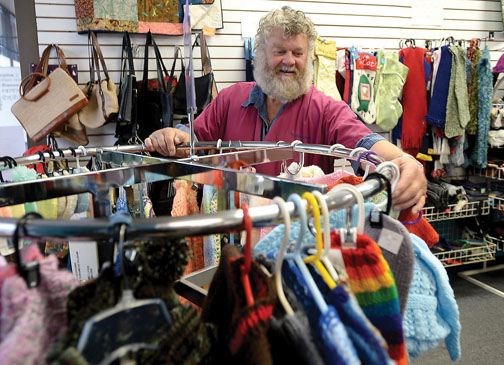Prince George city council continues to wrestle with the wording of its tax exemption policy, which kept some charities in limbo but ensured the majority could make the application deadline.
Council passed the document Friday but pushed it back to the committee level to clear up some of the language.
Coun. Jillian Merrick couldn't get on board with a consideration added by the finance and audit committee.
It stipulated organizations must show "any commercial activity undertaken on the exempt property is not in competition with for-profit businesses," the Permissive Tax Exemption Policy reads.
"My fear is this may be used as a tool for for-profit businesses to drive social enterprise out of the marketplace," said Merrick Friday afternoon following the vote, with her as the only one opposed.
Every year, the city grants permissive tax exemptions to certain organizations such as churches, private schools and municipal tenants who meet criteria set out in the Community Charter and the city's own guidelines.
"The reason I am uncomfortable with that exclusion is that virtually all enterprise activity is in competition with somebody and I think we're basing our assumptions that for-profit business in Prince George will not challenge non-profits on these activities but this line gives them a tool to do so."
Charitable thrift stores fall into this grey zone, but as a work-around staff suggested grant programs could fill the gap.
"In trying to address all of these social entrepreneurs, what's happening is we're constantly changing property tax exemption policy to try to keep up," said social planning manager Chris Bone.
"One of the options we thought of, is there an opportunity instead to look at our myPG community grants and use that as a mechanism to address emerging social need," she said, adding one group was awarded a grant this year.
Mayor Lyn Hall said Merrick's points had merit and asked that staff look at it at the next finance and audit committee meeting.
"I think it needs some clarification," said Hall, who said to him there was a difference between Value Village and a charity-run thrift stop.
"That for me is a service to the community," he said after the meeting. "Council will have to look at the differentiation between those two soon and see where they fall within the guidelines."
Late last year, the committee heard forgiving the taxes going back to 2013 for the Salvation Army and St. Vincent de Paul thrift store operations would amount to $26,327.59.
BC Assessment also plays a role in how the properties are designated. For example, in 2013, a BC Assessment review resulted in the St. Michael's property - normally completely tax exempt because it's a place of worship - being levied $4,611.70 and $461.18 in penalties for late payment.
"The amount of tax is such that when paid, our expenses would exceed any revenue that is made," Rev. Glenn Stone told council in December.
On Friday timing was a key factor, with most councillors preferring to pass a policy rather than go back to the drawing board.
"If we were to postpone this to the next finance and audit meeting which is not until May I don't think we would be giving the applicant's enough time," the city's finance director Kris Dalio told council.
"There's advertising requirements, there's preparing the work, adjudicating all the applications and giving the applicants themselves times to apply," he said, before the October deadline. By this time of year, the applications would already be on the city's website, he said.
Coun. Terri McConnachie said she was comfortable with the amount of work that had been put into the new policy, the majority of which had been re-worded to address eligible organizations for services that deal with safety, social inclusion, housing services and mental health and access to arts, recreation and culture.
"This is a living document but also it could be tested," said McConnachie. "We can see how it rolls out and we could always bring it back to the table at any time."
After the meeting, Hall said staff will be looking at thrift stores that operate out of a commercial building.
"That'll be a piece that we watch very closely," he said. "I think the new guideline offers a clearer opportunity for nonprofit organizations to understand who's eligible and who isn't."
But to Merrick, the guidelines aren't clear at all.
"This is a really challenging and tricky area and there's no clear policy that we've seen that really hits the nail on the head but I think this one will potentially cause more problems than it will solve."
-- with files from Charelle Evelyn



